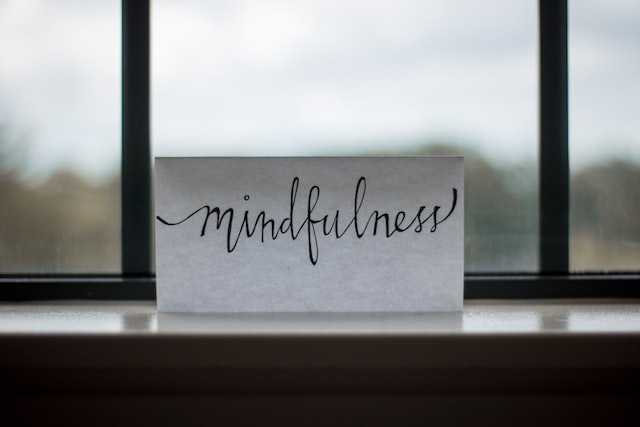If you’re familiar with mindfulness, you’re familiar with its concepts of present-moment awareness, releasing what you can’t manage, and non-judgment. You would not be mistaken! Mindfulness offers several benefits for our emotional well-being. But the plot twist is that you may also use mindfulness practices to improve your physical health. The same activities that promote serenity and tranquility can also be used to achieve diet and exercise objectives, resulting in a healthier, stronger relationship with your body. We’ll go over ways to expand your mindfulness practice further than meditation cushion and into the kitchen and the gym.

What Exactly Is Mindfulness?
Mindfulness is the deliberate practice of focusing on the present moment. In other words, what is going on now, and how can you effectively engage with it? The premise is that we only have the current moment—the past and future exist, but we will never be in them. As a result, we are happiest when we stay rooted in the present. Mindfulness involves focusing on breathing, paying attention to our thoughts, resisting judgment, and expressing sympathy for ourselves and others to tether our ever-wandering minds to the present.
Mindfulness Has Many Advantages
The majority of mindfulness research has been on its mental health benefits. Mindfulness interventions are comparable to cognitive behavioral therapy in treating anxiety and depression! Mindfulness practice helps alleviate anxiety and depression by making you feel more involved and present. It is also a strategy utilized anytime, making it incredibly accessible.
Mindfulness practice can help you focus more on your breathing and your body, which can drop your blood pressure. It can also help you feel calmer, enhancing your sleep and minimizing chronic pain symptoms.

Why New Year’s Resolutions Fail and How Mindfulness Can Help
Approaching health goals with a more mindful mindset may provide a better long-term solution. If you want to try to stick to a resolution, you must also be conscious of the changes that must be made. Mindfulness practice can be highly beneficial in accomplishing health objectives since it allows you to be more present and in the moment when making those decisions.
You must be present to build muscle, use movement to heal physical illnesses, and reestablish posture. Focusing your entire thoughts on flexing a muscle and feeling every fiber throughout the repetition enhances the movement’s quality and effectiveness. So when your mind wanders to the discussion show on the gym TV or your later-in-the-day commitments, try to recognize and refocus your concentration on the physical job at hand.
Exercising While Breathing
Focusing on breathing is essential when working out, but you might be amazed at how your breath can influence any workout. Concentrating on the breath is necessary for appropriate core function and intramuscular coordination. To maximize the benefit of the exercise, each movement has its own breathing pattern. One rule of thumb is to exhale during muscle contractions and inhale during muscle expansions. For example, breathe in during a push-up while lowering to the ground, then out while pushing back up.
Take Note of Your Fitness Habits
Do you really want to go home after work, or do you have time to go to the gym? Paying attention to how you use your time can be the difference between getting in a terrific workout and missing out on a fitness chance. To build new habits that will bring you to your fitness goals, you must be conscious of your decisions and the process you are following throughout the day. It’s similar to driving in that it’s fully automatic unless you bring consciousness or are forced to take a detour. Rather than allowing your daily grind to dictate your fitness routines (or lack thereof), attempt frequent mental check-ins to determine when you might fit in some exercise.
Kim’s Final Thoughts…
Including mindfulness activities in your eating and fitness routines may be easier with the assistance of a professional. If you want to use the power of the present to achieve your health objectives, talk to a qualified dietitian or personal trainer who specializes in the mind-body link.


